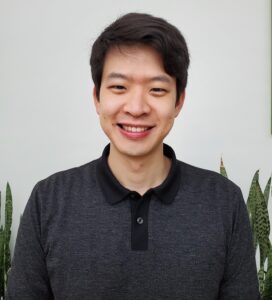A position is open for a full-time research assistant (RA) in the Department of Pathology at Brigham and Women’s Hospital. Under the supervision of Dr. David Walt and Dr. Travis Gibson, the selected candidate will provide technical assistance for research pertaining to the human gut microbiome and its interactions with the host immune system. This position will provide the opportunity to work with histologic, immunohistochemical, molecular cytogenetic, and in situ protocols in a state-of-the-art lab environment.
Among other responsibilities, the selected candidate will perform multiplexed error-robust fluorescence in situ hybridization (MERFISH). The RA will perform all stages of the MERFISH protocol, including tissue fixation, permeabilization, hybridization, embedding, and clearing, in addition to imaging using a custom-built semi-automated robotic system built by a team at BWH. The selected candidate will primarily work independently to prepare and process tissue samples while optimizing the respective protocols, and will work closely with the surrounding research team to interpret the resulting data. Previous experience with protocols involving RNA is considered a strong asset. Other responsibilities of the selected candidate include assistance with the execution of the ultrasensitive single molecule array (Simoa) assay. Research conducted by the candidate in collaboration with the research team will provide new insights into the dynamics of the gut microbiome and will address underlying biological questions.
The responsibilities of the selected candidate may include:
- Independently performing routine and non-routine experimental protocols of moderate to high complexity. Experimental work will include preparing buffers and reagents without RNase contamination and evaluating the reagents for viability.
- Performing literature searches relevant to the execution of the required protocols.
- In collaboration with the PIs or Research Manager, modifying existing research techniques and potentially establishing new techniques.
- Communicating progress professionally with collaborators and with the scientific community.
- Coordinating and scheduling tests and procedures, and documenting experimental work accurately and in detail.
- Ordering laboratory supplies related to their assigned tasks.
- Following all lab safety protocols.
BA/BS in biological/physical science required. Some prior research preferred but not essential.
Skills/Abilities/Competencies Required:
- Sound analytical and organizational skills.
- Requires good oral and written communication skills.
- Must be able to logically and effectively structure tasks and set priorities.
- Ability to identify potential problems and troubleshoot solutions.
About the lab environment
The Gibson Lab is located in the Division of Computational Pathology at Brigham and Women’s Hospital (BWH), a Harvard Medical School teaching hospital, which is the second largest non-university recipient of NIH research funding. The broad mandate of the Division of Computational Pathology is to develop and apply advanced computational methods for furthering the understanding, diagnosis, and treatment of human diseases. The Division is situated within the BWH Department of Pathology, which houses over 40+ established investigators, 50+ postdoctoral research fellows, and 100+ research support staff. In addition, BWH is part of the greater Longwood Medical Area in Boston, a rich, stimulating environment conducive to intellectual development and research collaborations, which includes the Harvard Medical School quad, Harvard School of Public Health, Boston Children’s Hospital, and the Dana Farber Cancer Institute. Many of our lab members also have appointments at the Massachusetts Institute of Technology and the Broad Institute.
Applications Process
Submit: (1) cover letter; (2) curriculum vitae to: Utkarsh Sharma, usharma1@bwh.harvard.edu

 Human tissue, which is inherently three-dimensional (3D), is traditionally examined through standard-of-care histopathology as limited two-dimensional (2D) cross sections that can poorly represent the tissue due to sampling bias. To holistically characterize 3D histomorphology, 3D imaging modalities have been developed, but clinical translation is hampered by the complex and time-consuming requirements for manual evaluation, as well as the current lack of computational platforms to distill clinical insights from these large, high-resolution datasets. We present a deep learning model for processing tissue volumes and predicting patient outcomes with weak supervision. Recurrence risk-stratification models were trained with archived prostate cancer specimens imaged with open-top light-sheet microscopy or microcomputed tomography. By comprehensively capturing 3D morphologies, 3D block-based prognostication achieves superior performance to traditional 2D slice-based approaches, including existing clinical/histopathological baselines. Incorporating larger tissue volumes is shown to improve prognostic accuracy. This framework offers a promising direction for clinical decision support and 3D biomarker discovery, with the potential to further catalyze the growth of 3D spatial biology techniques for clinical applications.
Human tissue, which is inherently three-dimensional (3D), is traditionally examined through standard-of-care histopathology as limited two-dimensional (2D) cross sections that can poorly represent the tissue due to sampling bias. To holistically characterize 3D histomorphology, 3D imaging modalities have been developed, but clinical translation is hampered by the complex and time-consuming requirements for manual evaluation, as well as the current lack of computational platforms to distill clinical insights from these large, high-resolution datasets. We present a deep learning model for processing tissue volumes and predicting patient outcomes with weak supervision. Recurrence risk-stratification models were trained with archived prostate cancer specimens imaged with open-top light-sheet microscopy or microcomputed tomography. By comprehensively capturing 3D morphologies, 3D block-based prognostication achieves superior performance to traditional 2D slice-based approaches, including existing clinical/histopathological baselines. Incorporating larger tissue volumes is shown to improve prognostic accuracy. This framework offers a promising direction for clinical decision support and 3D biomarker discovery, with the potential to further catalyze the growth of 3D spatial biology techniques for clinical applications.